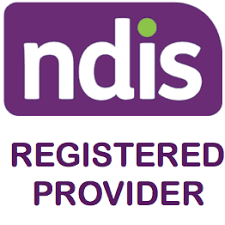Apps
Course Overview
Emotional regulation is the foundation for learning, positive relationships, and overall wellbeing. Research shows that children and adolescents with strong emotional regulation skills perform better academically, build healthier relationships, experience fewer behavioural difficulties, and lead more balanced, less stressful lives.
However, not all children naturally develop these skills. Without explicit guidance, many adopt ineffective or maladaptive coping strategies when faced with stress or challenges. This can lead to patterns of avoidance, oppositional behaviours, aggression, or heightened anxiety.
This interactive workshop equips caregivers, educators, behaviour support practitioners, and allied health professionals with knowledge and practical strategies to support children in developing emotional regulation skills across home, school, and community settings.
Learning Outcomes
- Understand the definition and characteristics of emotional regulation.
- Develop insight into the nature of anxious, oppositional, and aggressive behaviours.
- Learn strategies for effectively responding to and de-escalating these behaviours.
- Gain tools to teach and promote emotional regulation skills in structured, supportive, and everyday contexts.
- Explore ways to integrate emotional regulation strategies into home, childcare, school, and community environments.
Professional Development Relevance
This workshop supports the ongoing professional growth of teachers, behaviour support practitioners, disability staff, and allied health professionals. It addresses critical areas of inclusive education, behaviour support, and social-emotional development.
Key Links to Professional Growth
- Builds knowledge of emotional regulation and its impact on behaviour and learning.
- Strengthens capacity to support students with anxious, oppositional, and aggressive behaviours.
- Promotes reflective practice and evidence-based intervention strategies.
Outcomes for Practice
- Participants will leave with strategies that can be immediately applied in educational, home, and community settings.
- The workshop encourages reflection and practical skill-building to improve outcomes for children and adolescents with challenging behaviours.
- Educators, caregivers, and practitioners will be better equipped to guide children in developing resilience and adaptive coping skills.
Who Should Attend
- Primary and secondary school teachers
- Early childhood educators
- Teacher assistants and learning support officers
- Parents and caregivers
- Disability support staff
- Case managers
- Youth and community workers
- Allied health professionals
- Behaviour Support Practitioners
Delivery Format
The workshop is delivered in an interactive and practical style, blending theory, case examples, and hands-on strategies. Participants will engage in reflection, discussion, and activities designed for direct application in their roles.
Workshops can be delivered online or face-to-face, and each session is tailored to the unique needs, priorities, and context of your school or organisation to ensure maximum relevance and impact.



